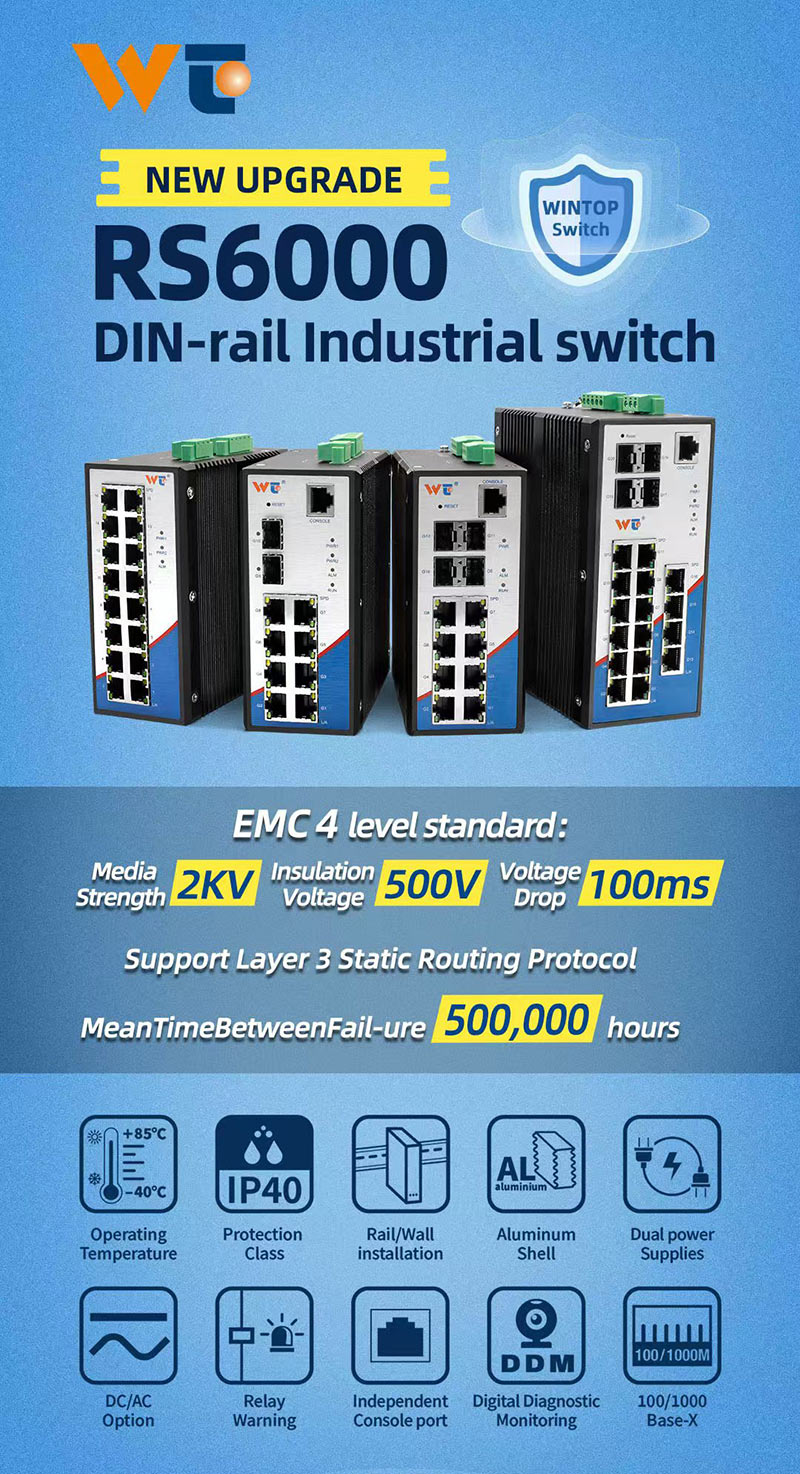Applications of Industrial Switches
Industrial switches are pivotal components in a variety of automated systems and machinery, playing a crucial role in ensuring the seamless operation of industrial processes. These switches, designed to withstand harsh environments and demanding applications, are integral to the functionality and reliability of industrial systems. In this article, we will explore the diverse applications of industrial switches, highlighting their importance across different sectors.
Introduction to Industrial Switches
Industrial switches are devices used to control the flow of electricity in industrial settings. Unlike their consumer-grade counterparts, these switches are built to endure extreme conditions, such as high temperatures, humidity, dust, and mechanical stress. They come in various types, including limit switches, proximity switches, pressure switches, and toggle switches, each designed for specific applications and environments.
Applications in Manufacturing
Automation and Robotics
In modern manufacturing, automation is key to enhancing productivity and precision. Industrial switches are integral to robotic systems, where they serve as end-of-arm tooling sensors, position sensors, and safety interlocks. For instance, limit switches are employed to detect the presence or absence of objects, ensuring that robotic arms perform tasks accurately and safely. These switches help in coordinating the movements of robots, thereby preventing collisions and ensuring smooth operations.
Conveyors and Material Handling
Conveyor systems are the backbone of material handling in manufacturing plants. Industrial switches play a critical role in these systems by monitoring and controlling the movement of materials. Proximity switches, for example, are used to detect the position of items on the conveyor, triggering actions such as sorting, stopping, or diverting items as needed. This ensures efficient handling of materials, reducing downtime and increasing throughput.
Applications in Energy and Utilities
Power Distribution
In the energy sector, reliable power distribution is paramount. Industrial switches, such as circuit breakers and disconnect switches, are essential for managing the distribution of electricity. These switches protect electrical circuits from overloads and short circuits, ensuring the safety and reliability of power systems. In addition, they facilitate maintenance by allowing sections of the power grid to be isolated without disrupting the entire system.
Renewable Energy Systems
The rise of renewable energy has introduced new challenges in terms of system integration and reliability. Industrial switches are crucial in solar and wind energy systems, where they are used to control and protect inverters, transformers, and other critical components. For example, in solar power installations, switches help in isolating photovoltaic panels for maintenance and in protecting the system from electrical faults.
Applications in Transportation
Railways and Mass Transit
Safety and efficiency are critical in railway and mass transit systems. Industrial switches are used in signaling systems, track switching mechanisms, and train control systems. They ensure that signals are accurately transmitted and that track switches operate reliably, minimizing the risk of accidents and ensuring the smooth flow of trains. Pressure switches, for instance, are used in braking systems to monitor and control air pressure, enhancing safety.
Automotive Manufacturing
The automotive industry relies heavily on industrial switches in both the manufacturing process and the vehicles themselves. On production lines, these switches are used in assembly robots, conveyor systems, and quality control equipment. In vehicles, they serve various functions, from controlling lighting and HVAC systems to monitoring engine parameters and ensuring passenger safety.
Applications in Healthcare
Medical Equipment
Industrial switches are also crucial in the healthcare sector, particularly in medical equipment. Devices such as ventilators, MRI machines, and infusion pumps rely on switches for precise control and monitoring. These switches must meet stringent standards for reliability and safety, given the critical nature of medical applications. For example, pressure switches are used in respiratory devices to ensure accurate delivery of air or oxygen to patients.
Laboratory Automation
In medical laboratories, automation is essential for handling high volumes of tests and samples. Industrial switches are used in laboratory equipment, such as automated analyzers and sample handling systems. They help in detecting the presence of samples, controlling the movement of robotic arms, and ensuring the accurate dispensing of reagents. This enhances the efficiency and accuracy of laboratory operations.
Conclusion
The applications of industrial switches are vast and varied, spanning multiple sectors from manufacturing to healthcare. These robust and reliable components are indispensable in ensuring the efficient and safe operation of industrial systems. As technology continues to advance, the role of industrial switches will become even more critical, supporting the development of more sophisticated and automated industrial processes. Understanding the diverse applications of these switches underscores their importance in the modern industrial landscape.
